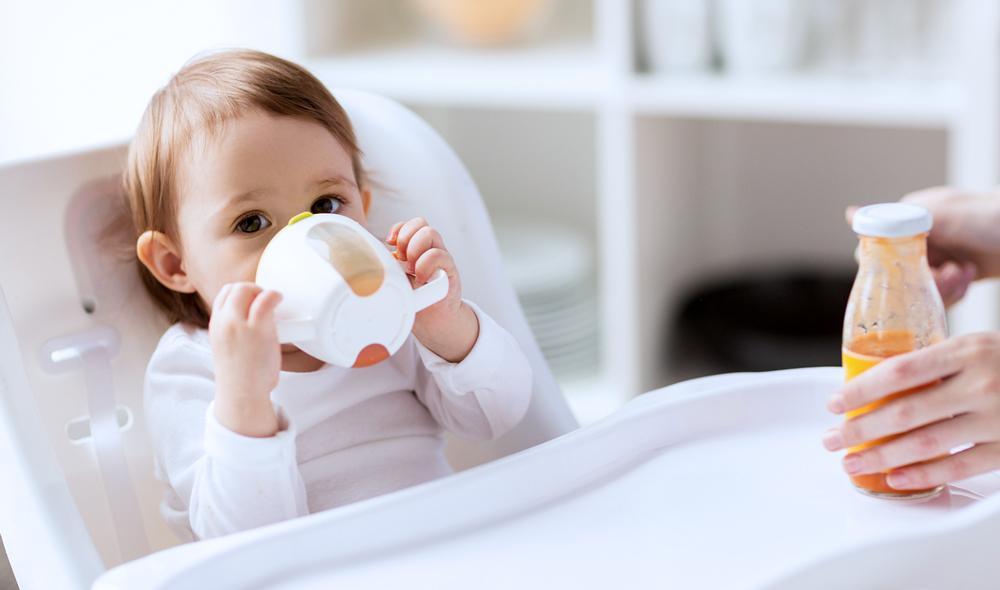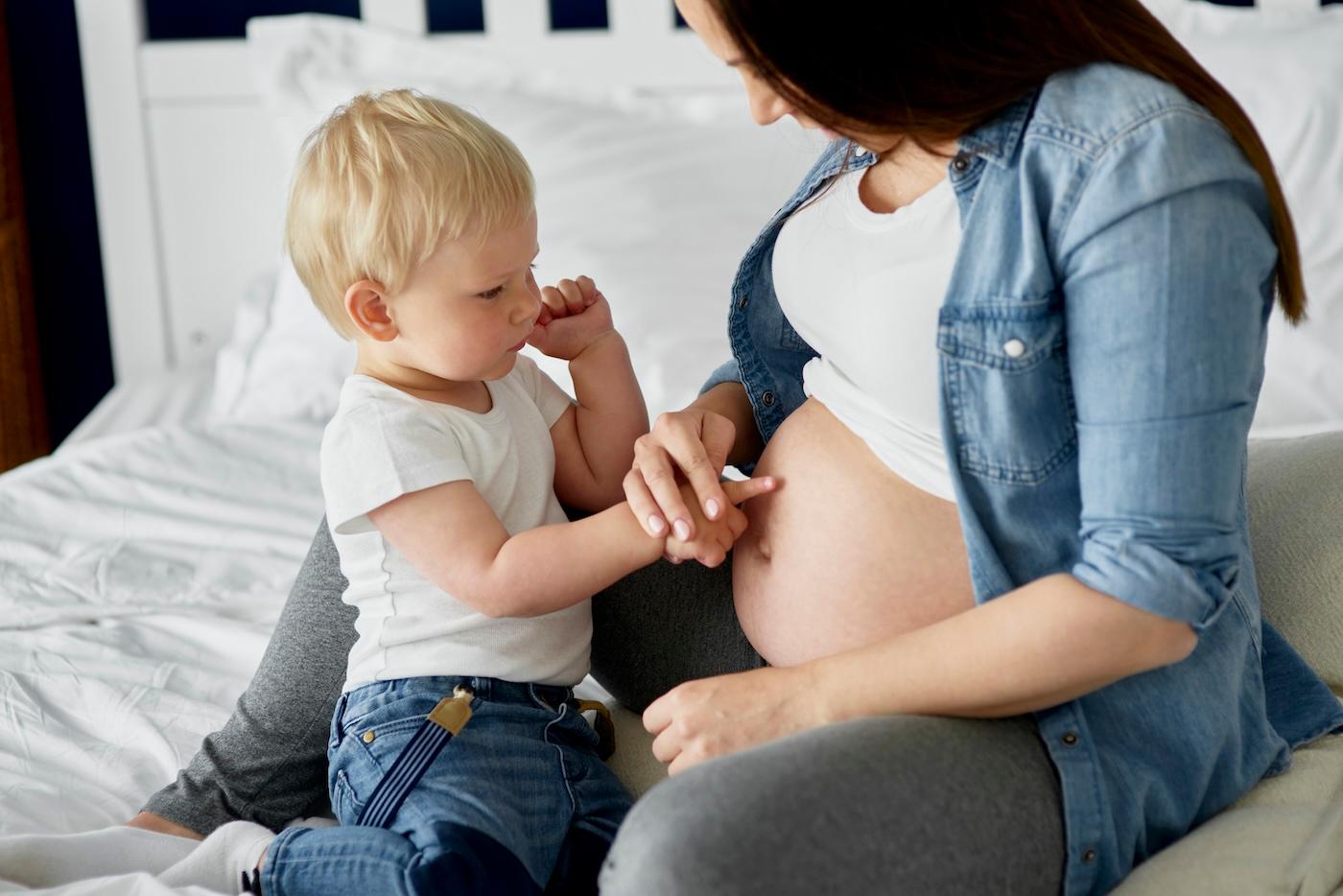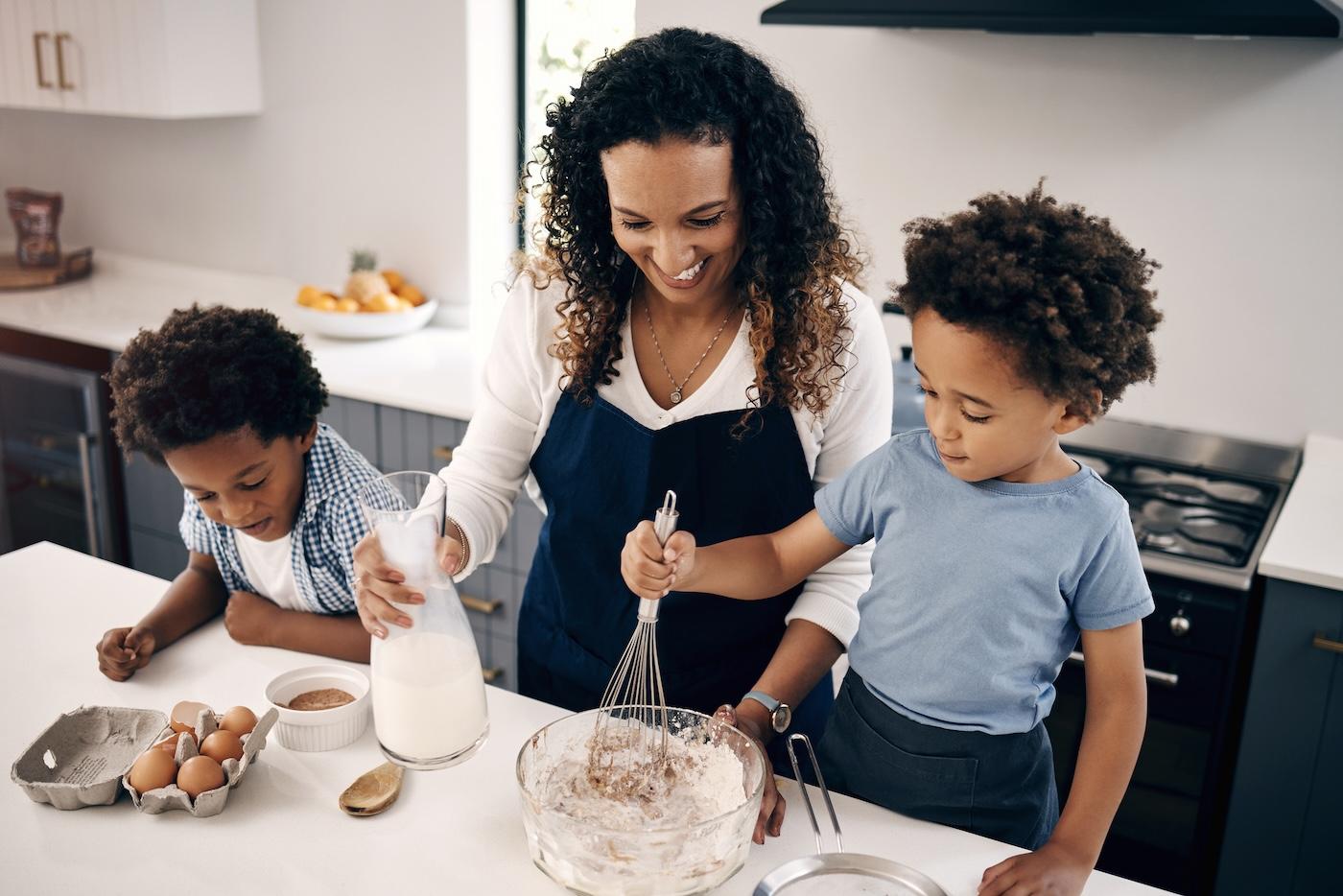TODDLER
When Can Babies Drink Juice?
Concerns about obesity and tooth decay prompted stricter guidelines on juice.

Written by
Dr. Harvey Karp

Juice has traditionally been a widely accepted drink for babies and toddlers. However, the National Health Service (NHS) has released information and details on when your baby can drink juice. Due to the higher sugar levels and lack of nutritional content of fruit juice (apple, orange, prune, etc), it is best to follow the guidelines set forth by the NHS.
When Can Babies Drink Juice?
When can babies drink juice? The National Health Service (NHS) says it is best to wait until after your baby is 1 year old before giving them juice unless your doctor recommends it earlier for managing constipation. Growing concerns about increased rates of obesity and tooth decay prompted the change of when you could give babies juice from the previous recommendation of 6 months.
Apple Juice for Babies and Infants
When I was a young doctor, we thought apple juice was a great first drink for babies, but it turned out to be a bad idea...resulting in the early introduction of sugar addiction.
It turns out that fruit drinks and fruit juice (including apple juice) are the food equivalent of an "alternative fact." Actually, the "fruit" (the pulp and most nutritious parts of the fruit) is thrown away, leaving "juice" (pretty much just sugar and water). This includes apple juice, orange juice, and even prune juice.
Your baby is better off without juice in the early days!
What Can Babies Drink If Juice Is Out?
For the first 6 months, babies should only have breast milk or formula (it is even better if you can breastfeed for a full year, per the NHS). But after you do wean, formula and water are the preferred drinks, until your baby’s first birthday. I also recommend offering non-caffeinated mint or chamomile tea. Just drop the tea bags in a pitcher of room temperature water and let it sit in the sun and self-brew for an hour. They are naturally sweet without sugar…and kids love them!
How Much Juice Can Toddlers and Big Kids Drink?
After 1 year of age, pure 100% juice is OK as a special treat. Do not think of it as a daily beverage for your little one to sip throughout the day. But that said, when you do give juice, the American Academy of Pediatrics recommends you stay under the following daily limits:
- 113 grams a day for 1- to 3-year-olds
- 113-170 grams. a day for 4- to 6-year-olds
- 226 grams a day for 7-year-olds and up
The NHS recommends that if you do choose to give your baby juice, dilute the juices (one part juice to 10 parts water) and limit them to mealtimes.
So, if you were asking yourself the question “When can I give my baby juice?” Now you know! However, do not let these juice restrictions confuse you about fruit—whole fruit is full of vitamins, minerals, and dietary fiber. When you introduce solids to your baby, pureed and mashed fruit should be part of the mix.
Disclaimer: The information on our site is NOT medical advice for any specific person or condition. It is only meant as general information. If you have any medical questions and concerns about your child or yourself, please contact your health provider. Breastmilk is the best source of nutrition for babies. It is important that, in preparation for and during breastfeeding, mothers eat a healthy, balanced diet. Combined breast- and bottle-feeding in the first weeks of life may reduce the supply of a mother's breastmilk and reversing the decision not to breastfeed is difficult. If you do decide to use infant formula, you should follow instructions carefully.
SHARE THIS ARTICLE
PARENT PICKS
Bestsellers



















